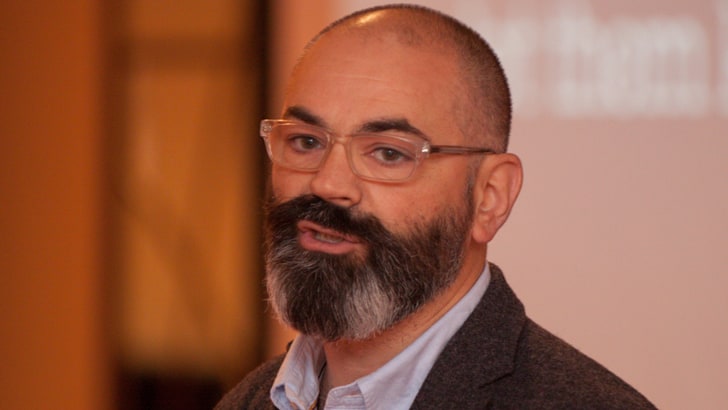
What’s the biggest challenge you face in the day-to-day business?
Talent. People. Finding the right talent. Finding the right people. Recruitment’s quite difficult. You can find lots of designers, but finding good, good designers, no. It’s the biggest challenge we have.
I think managing rapid growth is also difficult. We’re really busy, and we’re trying to manage that growth, because recruitment is not quick, and that’s another challenge.
What are you proudest of in your time at Portland Design?
I think I’m really proud of our student internship. We actually have quite a few of internships, but in particular, the one that’s been going from the day I joined is a one-year internship for interior architecture students. They come here for their third year, and they go back and finish the fourth year and for 13 years every one of our students that finished their course have got a first. Quite a few of them came back to work for us, and one of our senior designers has been with us for the last eight years. A lot of them come back. I think the one thing I’m really proud of, as well as that, is that the people that work for the business now or in the past talk fondly about the culture of the business.
Why do you think that is?
I think that, beyond anything, building a business is relatively easy. As long as you’ve got enough money. You’ve got to do your marketing, you’ve got to do your recruitment, you’ve got to find your space, you’ve got to do your sales and your finances; all the functions of a business. Once you’ve done that for a few years it can be relatively straightforward. I’ll say this with trepidation. But what I find is that the much more difficult thing is to build a culture that’s sustainable, that’s evolving, that is organic, that changes with the times and is nimble.
It’s what takes the biggest brain power, time, and effort to ensure that you have a culture that isn’t being scripted for everyone to follow It’s something that evolves naturally from how you behave, not what you say. It’s not a form of manual. At the end of the day, it’s how the boss behaves. So from the way you talk to your colleagues, from your body language, the way you support or not support each other, from the way you don’t judge, from the way you allow people to, kind of, be happy in their skin. That’s what we try to do.
How have you been able to implement that at Portland Design?
I think we have, and have had, historically, a whole bunch of people that have been happy in their skins here, and that transcends design. It transcends projects. It’s a really important part of owning a business, because, what do you own? You don’t own anything, really. You just have a collective of people that you spend a bloody lot of time with. You don’t just work with them. You spend more time with them than you do with your family, and I think that in a business is really, really critical.
How does that type of culture inform your own sense of leadership?
I suppose it could be summed up through my definition of the difference between management and leadership. I don’t know if it is mine or I’ve stolen it! Management is about allocating resources to tasks, creating a team with the right skills; doing things within a timeline, within budgets, and the delivery of that. That’s management.
Leadership is about one thing and one thing only. Leadership is about making other people successful. It’s like cosmology. It’s about observing the stars, finding the stars. It’s understanding where the stars are and what their position in the galaxy is. So you’re a cosmologist when you’re a leader – finding and getting those stars and then facilitating an environment that allows them to be successful in their own right. It isn’t about your success any longer.
Why does that still energise you?
That is the buzz I get. Because over 27 years I’ve done some amazing projects, but it’s no longer just the projects, it’s about our clients having great experiences working with our stars. That’s what we strive for. The design industry, has, for too long been driven by egos, and when you are in the design business it’s so often the case that the designers, and the design businesses feel more important than their clients.
It’s nothing to do with that. For us, it’s just being part of the client team, and hopefully adding some value, and doing something really far-reaching, really significant, with them. Not for them, with them. And the only way you do that is to have really, really talented people that feel happy in their skin and have got the freedom and the liberty to work with the clients and not be afraid to make mistakes or say something out of line, or all those things that happen in companies where they’re driven by a fear culture. And that’s the old paradigm of business, I think.
Michael Jones
 Ibrahim Ibrahim was a keynote speaker at the FCSI EAME annual conference in Warsaw, Poland in September 2013. Read the full feature in the next edition of Foodservice Consultant
Ibrahim Ibrahim was a keynote speaker at the FCSI EAME annual conference in Warsaw, Poland in September 2013. Read the full feature in the next edition of Foodservice Consultant
